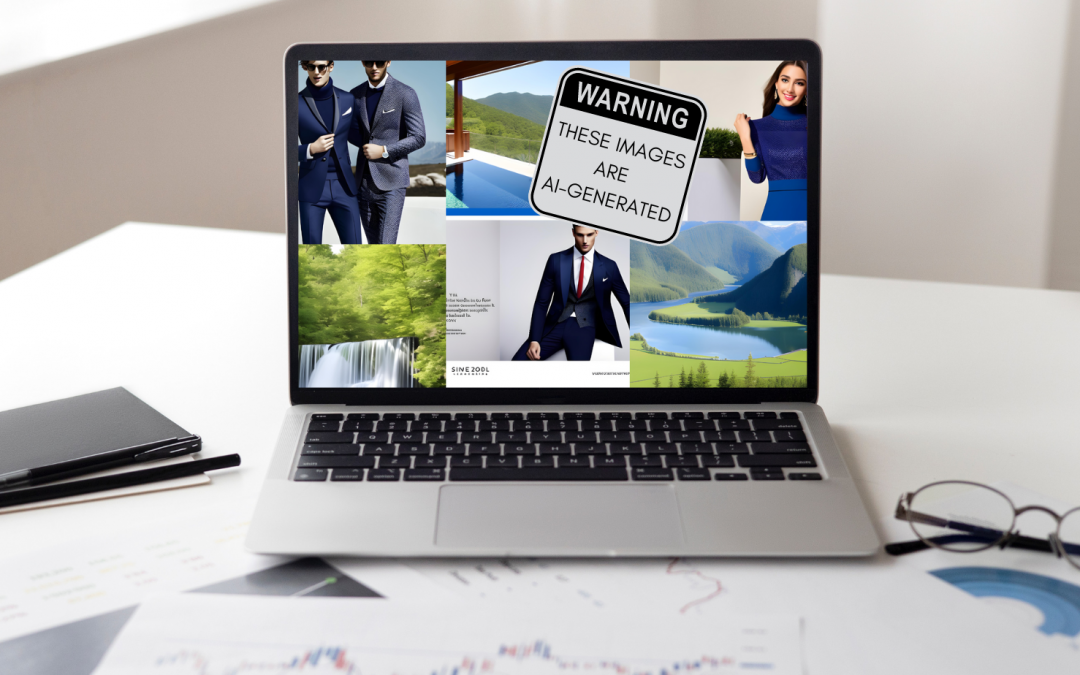The Generative AI Industry Has Inspired an AI Detection Industry
Everyone, including AI developers, rightfully acknowledges the remarkable level of sophistication brought by AI in generating AI images. This can include entertaining pictures of the Pope wearing a leather jacket and riding a motorcycle. (Though, would you believe it, nearly a decade ago Pope Francis indeed auctioned off a signed motorcycle and leather jacket.)
Internet merrymakers mine the technology for risible double-take deepfakes, but for marketers, graphic designers, artists, and other specialists in visual media, this technology is exciting for deeper reasons.
It is especially exciting for business owners, who will be able to easily upscale the quality and quantity of visual materials for their company. From headshots for employees to put on the business’ website to image ads, the opportunities are endless for leveraging image-generating AI.
Business owners should be cautious about the potential implementation of AI detection software in search engines and social media sites. Such software aims to inform users about the AI-generated content.
What Is the Likelihood of AI Detection Tools Becoming Universal on the Internet?
Right now, it is unknown whether sites will even employ A.I.-detection software, though this is a strong possibility once Congress makes progress in regulating AI.
The primary motivation for this action would be to combat the anticipated proliferation of misinformation as generative AI continues to improve. Consider the above-mentioned example of the Pope riding a motorcycle. Some people may find this image funny. However, imagine AI-generated images of world leaders doing bad, illegal, or even downright nefarious things.
AI-detection tools will likely need implementation as the number of these images increases. When considering whether to regard these images as free speech or attempts at outright defamation, one may encounter blurred lines. Justices in the legal system will largely rely on their judgments to determine whether the images have a malicious intent to deceive or are intended to be seen as parodic.
Therefore, it is possible that an AI-generated image you post to your company’s Instagram account may receive a “Generated by AI” label. The biggest question here is whether these labels will have a bigger impact than a merely superficial notification to users.
Will AI Detection Tools and Software Threaten Your Business’ Marketing Efforts?
Tagging a post with “Generated by AI” is one thing, but lessening its weight or worth is an entirely different thing. The latter would involve, say, Google’s search engine algorithm ranking apparently human-generated content higher than AI-generated content.
If this becomes the case, then a business’ use of AI content-generating tools will become much more risky as a business endeavor, no matter what wonders such tools do for the company’s productivity.
The main takeaway here is that it will not matter how great image-generating AI is if the content fails to rank. (Social media sites’ algorithms could similarly give higher ranks to human-generated images). For such algorithms, the notion of quality devalues the worth of AI-generated content.
In this case, you can expect to see plenty of marketing gurus promising you proven methods for bypassing AI detection software so that your AI-generated content will rank as well as human-generated content. If we had to make an educated guess, the process would likely involve studying the aspects of photos that clearly indicate they were created by AI rather than a human. The quick fix would be to go in, make the edits, then post the content and pray it does not get detected.
AI-Generated Content Versus Human-Generated Content
The alternative, of course, is giving AI-generated content equal worth as human-generated content. The result of this would be interesting if such AI-detection tags remain. If AI-generated content is blatantly shown to users, is it going to receive a lower ranking? In this case, social factors will determine whether people are less likely to view AI-generated images compared to human-generated images.
However, there is still a strong likelihood that AI detection software will not be integral to search engines and social media sites, and will instead be something that users are able to use at their own discretion. In that case, then, businesses will be able to freely use AI without much worries.
Right now, there is no evidence that using AI content generation tools will significantly hinder your digital marketing strategy. We here at Guardian Owl Digital advocate the use of generative AI because of the positive impact that it can have on your productivity. If you want to use generative AI to great effect, then GO AI today.
GO AI Articles
Guardian Owl Digital is dedicated to helping businesses everywhere learn about and implement AI.
For continuing your AI education and keeping up with the latest in the world of AI, check out our AI blog:
New Year, New AI: Here Are the Biggest Trends in AI Coming in 2023
How AI Could Have Helped Southwest Avoid Its Holiday Disaster
IBM Watson vs. Microsoft’s ChatGPT: The AI Chat Matchup of the Century
AI on the Stand: Explaining the Lawsuit Against the Microsoft Automated Coder
AI and You: What Determines Your AI Recommendations in 2023?
How AI Could Have Foreseen the Crypto Crash—(It Already Analyzes Exchange Markets)
Google’s Response to ChatGPT: What the Tech Giant Is Doing to Improve Its Own AI Efforts


Recent Comments